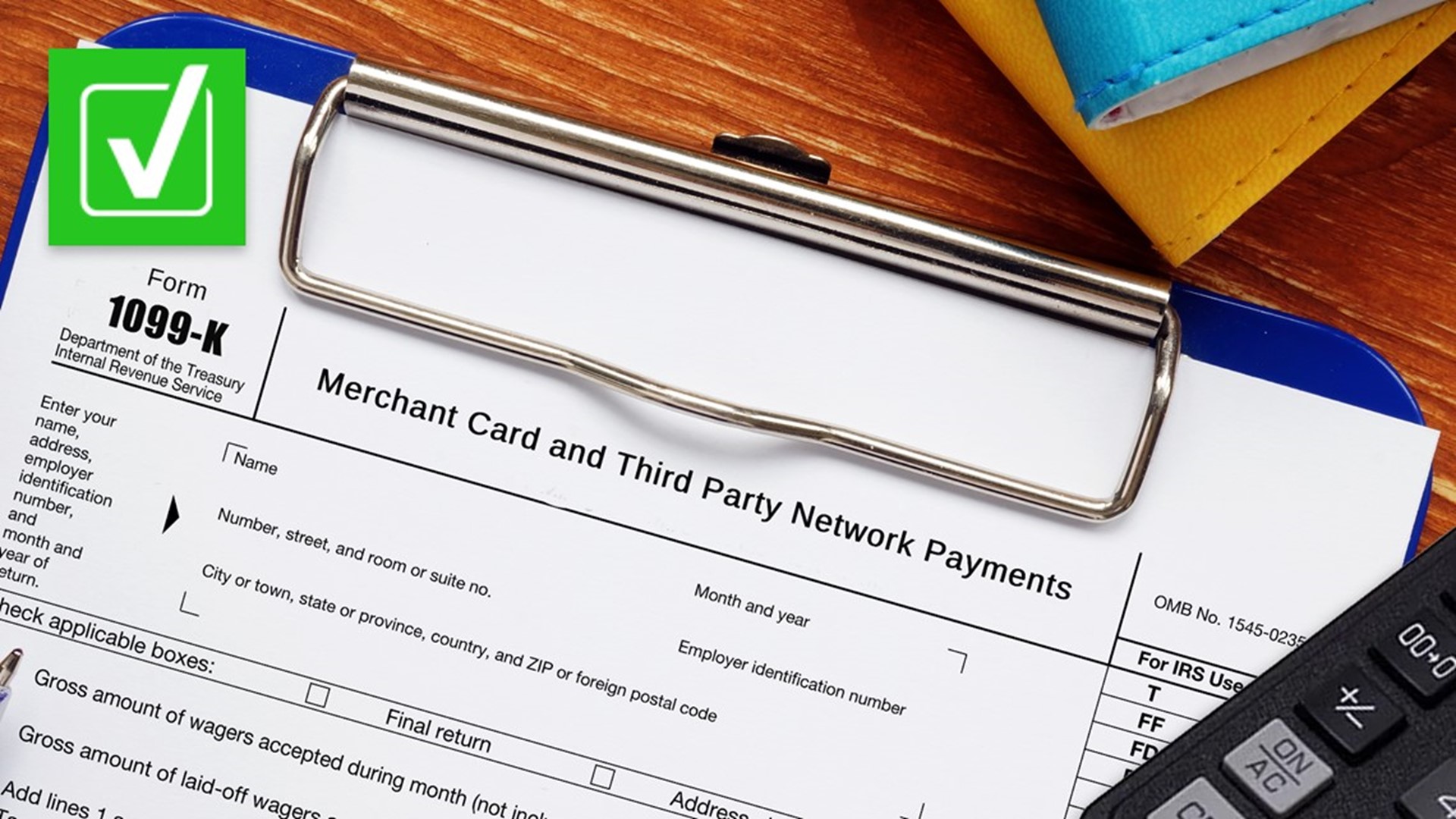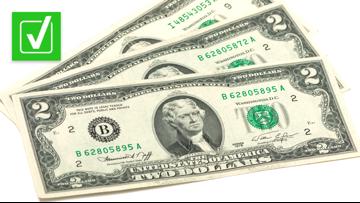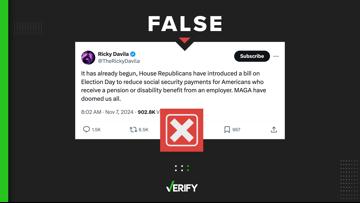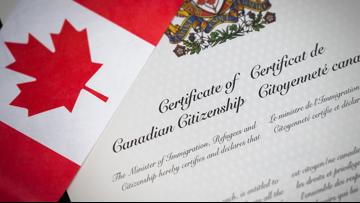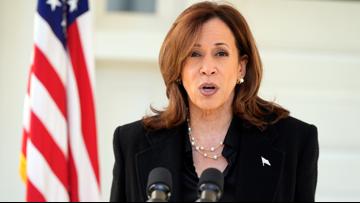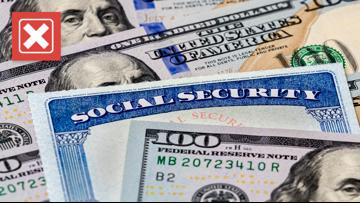STORY UPDATE: As of Jan. 1, the reporting threshold for business transactions processed through any cash apps is $600. An FAQ from the IRS is available here.
Beginning Jan. 1, 2022, people who use cash apps like Venmo, PayPal and Cash App are required to report income that totals more than $600 to the Internal Revenue Service.
VERIFY previously reported on the change in September, when social media users were criticizing the IRS and the Biden administration for the change, some claiming a new tax would be placed on users who use those apps to process payments.
After the change was made, a revision proposal was introduced to up the reporting threshold to $10,000 for income made via cash app, but that proposal was never passed into law.
THE QUESTION
VERIFY viewer Tina asked: "Next year will I be sent a 1099 for using money apps like Venmo or Zelle after $600 worth of money has been sent to me?”
THE SOURCES
- Steve Rosenthal, senior fellow at the Urban-Brookings Tax Policy Center at the Urban Institute
- David Super, a tax law professor at Georgetown University
- The Department of Treasury
THE ANSWER
Yes, you will receive a 1099-K form next year if you receive more than $600 on an app. This only applies for income that would normally be reported to the IRS anyway. Current tax law requires anyone to pay taxes on income over $600, regardless of where it comes from.
The taxes don’t apply to friends and family transactions, like rent payments or dinner reimbursements.
WHAT WE FOUND
The American Rescue Plan Act of 2021 modifies the IRS reporting requirement from $20,000 in aggregate payments and 200 transactions to a threshold of $600 in aggregate payments, with no minimum transaction number. The new rule went to effect on Jan. 1, 2022 and the first 1099-K forms for people who meet the lower $600 threshold will be sent in 2023.
This reporting using third-party applications, like Cash App, Venmo, or PayPal, only applies to goods and services, not personal payments, like if someone paid you back for a dinner.
An IRS explainer on the third-party transactions can be found here.
David Super, a tax law professor at Georgetown University, told VERIFY in an email: “This proposal does not change what is taxable or what is deductible. It merely seeks to achieve more honest reporting about what income is received and what deductible expenses are made.”
“If one is receiving money from a friend or family member as a gift or as a reimbursement, the effect is likely to be the same: no countable income. If, on the other hand, one is using the cash app to receive the proceeds of a business, those business receipts would need to be reported as such,” Super said.
Steve Rosenthal, a senior fellow at the Urban-Brookings Tax Policy Center at the Urban Institute, told VERIFY that Congress had been expanding information reporting for the gig economy for payments made for services using cash apps. For people using these applications, they would receive an information report and 1099-K to report any earned income.
“Venmo, for instance, should give you an information report and tell the IRS, likewise, that you received a substantial amount of receipts, as well as engage in a substantial number of transactions. Next year, Congress lowered the threshold to $600. So many more people will be receiving information reports from Venmo and other cash facilities,” Rosenthal said.
“That does not mean just because you receive an information report that you have taxable income, you may not have any gains on say, a transaction that was a sale, or maybe just a personal transaction and not per se, an income producing transaction,” he added. “Like my wife often receives Venmo payments from some of her girlfriends for groceries, and she makes those payments. And so that wouldn’t result in any income. And even if my wife got such a form, she could ignore it.”
He said the IRS only audits a tiny fraction of taxpayers, and that will continue. But if someone is getting a steady stream of money through a cash app, and it looks like it’s for retail or income, then “that will make that unreported business income more visible to the IRS.”
“The primary hope is that businesses will voluntarily report their income accurately once their receipts are more openly documented,” he said.
